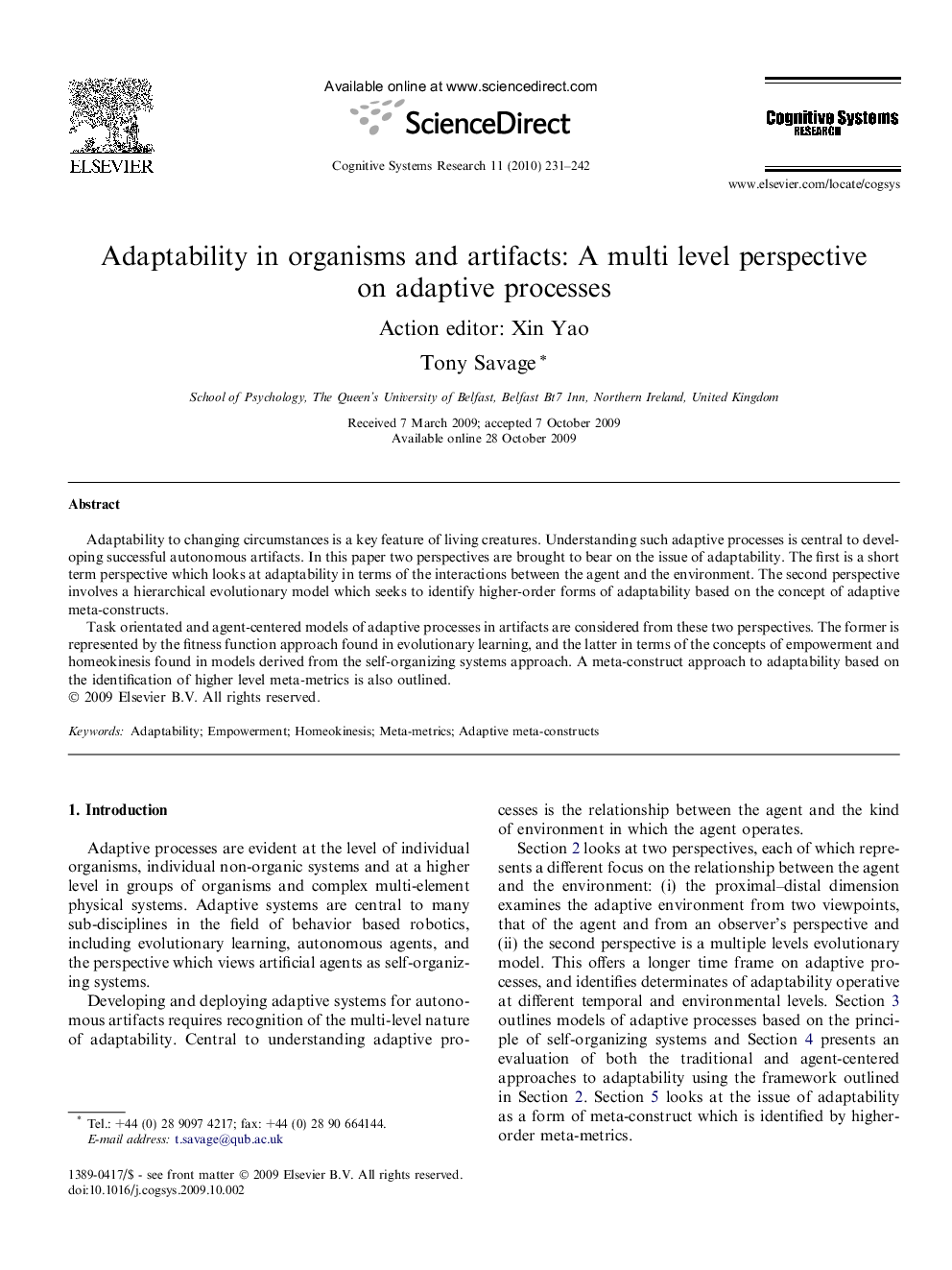| Article ID | Journal | Published Year | Pages | File Type |
|---|---|---|---|---|
| 378513 | Cognitive Systems Research | 2010 | 12 Pages |
Adaptability to changing circumstances is a key feature of living creatures. Understanding such adaptive processes is central to developing successful autonomous artifacts. In this paper two perspectives are brought to bear on the issue of adaptability. The first is a short term perspective which looks at adaptability in terms of the interactions between the agent and the environment. The second perspective involves a hierarchical evolutionary model which seeks to identify higher-order forms of adaptability based on the concept of adaptive meta-constructs.Task orientated and agent-centered models of adaptive processes in artifacts are considered from these two perspectives. The former is represented by the fitness function approach found in evolutionary learning, and the latter in terms of the concepts of empowerment and homeokinesis found in models derived from the self-organizing systems approach. A meta-construct approach to adaptability based on the identification of higher level meta-metrics is also outlined.
